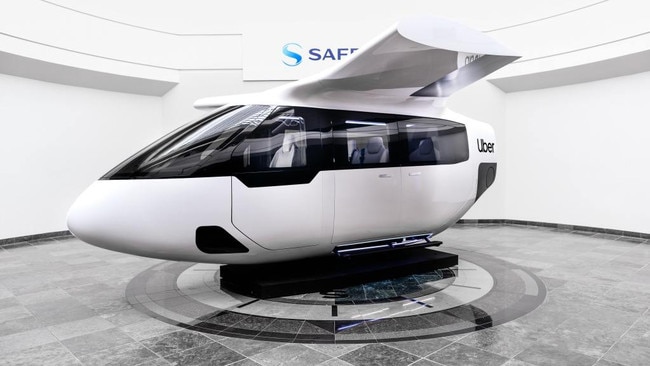Will we want a flying Uber?

Under Uber’s plan, traffic would be a thing of the past. You would be picked up by an Uber, taken to your nearest helipad, and along with several other passengers fly to the closest drop-off point. This all sounded great, before COVID-19.
Many have talked about the way COVID-19 has redefined the way we work. But I think the ultimate fallout from this pandemic is that it will forever change the way we commute and travel. In some instances, we will travel less, opting for video calls and online events. But when we do travel, I can’t help but think we will want to do so in our own vehicles.
COVID-19 has reinforced the need to own (or have access to) your own car. Without a car during this pandemic, you have to brave public transport, you can’t access drive-in testing clinics, and it‘s significantly more difficult to go to work, see loved ones or care for others — without being exposed to someone you don’t know.
It’s also led to a combination of conflicting influences in the transportation industry. Car sales have continued to fall on the back of weaker economic circumstances and uncertainty. Public transport use is at record lows. Even Uber has reported a decline in the number of rideshare services it‘s seen, dropping as much 70 per cent right at the start of the pandemic in March. It has seen an uptick in Sydney since restrictions eased, but not at the levels it enjoyed pre-COVID. Contrary to this, car subscription services have rocketed. Carbar, and many other services like it, for the first time, have a waiting list.
For me, this indicates a strong preference for having control of a vehicle during this period, but not at the expense of forking out for a brand-new car.
So what does this all mean for the future? There’s two ways of looking at it.
Firstly, when this pandemic passes, the world could completely recoil to where it was before. Uber goes ahead with its Jetsons-esque flying car plans and we start preparing for a driverless future where we happily share all forms of transport with others. Driverless cars transform the way we move around cities, and the desire (and need) to have access to your own car disappears over time.
Alternatively, and this is a very real possibility, this pandemic leaves a lasting impression on the psyche of this generation. It pushes people away from communal transport, and further towards owning or having access to their own car. Even with the rise of self-driving cars, there will be a rush towards ownership. This utopian idea of all transport being shared will disappear but may resurface when COVID-19 is a distant memory.
This all ties into the uncertainty that many businesses are facing right now. Even Zoom, who has seen record use during COVID-19, must be questioning whether the rise in video calls is a foundational change as to how we do business or just a sign of the times.
There’s only one certainty: Grand predictions made before COVID-19 are seeming less concrete by the day. Uber is pressing on with its flying car future, but it’s questionable whether there will be a market for it when it finally arrives.
Des Hang is the CEO and co-founder of car subscription service, Carbar



Flying cars. That’s the vision for the future of transport Uber announced just two years ago. Launching Uber Elevate, it basically told the world that we would be zipping around in automated VTOL helicopters within the next decade.